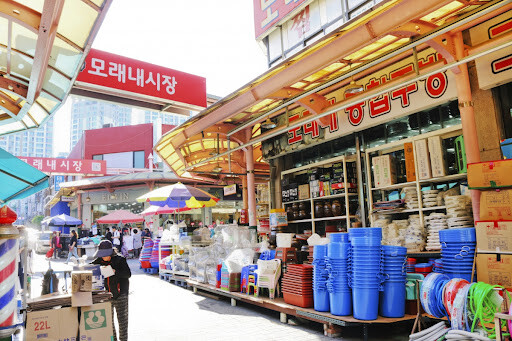
Incheon, South Korea – Incheon City has announced a significant investment of 17.2 billion won (approximately 13 million USD) in a comprehensive initiative to revitalize its aging traditional markets. The plan focuses on developing unique, culturally rich markets and enhancing safety measures, including advanced fire prevention systems.
The initiative will support 10 markets and 2 commercial districts through various programs, including cultural tourism market development, digital market transformation, and commercial district revitalization projects. This effort is part of a broader collaboration with the Ministry of SMEs and Startups to bolster traditional markets and shopping districts.
Last year's cultural tourism market development project saw success in three markets. Ganseok Jayu Market's "Nomaek Festival," Incheon Livestock Products Market's online-based night market, and Soraepogu Traditional Fish Market's art gallery and cultural space all experienced increased foot traffic.
This year, new markets such as Singeobuk Market, Incheon Gangnam Market, Ganghwa Pungmul Market, and Hyundai Market will receive support. Additionally, Canal Walk Shopping Mall and Mansu Market will participate in the "First Step Market" program to prepare for future specialized market development.
Incheon City will also expand its innovative "Traditional Market Mobile Stamp Tour," which links local attractions with market visits, offering rewards for completing tour courses. This program has already seen impressive participation and is expected to further drive traffic to traditional markets.
A substantial portion of the budget, 10.15 billion won, will be dedicated to improving market facilities and safety. A key focus is the implementation of a "smart electric fire safety system" powered by IoT and big data. This system will provide real-time fire detection and alerts, significantly enhancing safety for merchants and customers. The goal is to install this system in over 10,000 stores across 51 traditional markets by 2027.
Incheon City aims to create vibrant, safe, and culturally rich markets that attract both locals and tourists, contributing to the economic and social vitality of the region.
[Copyright (c) Global Economic Times. All Rights Reserved.]






























